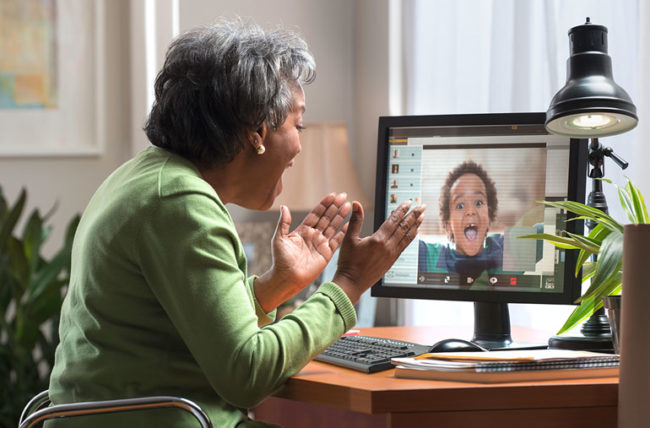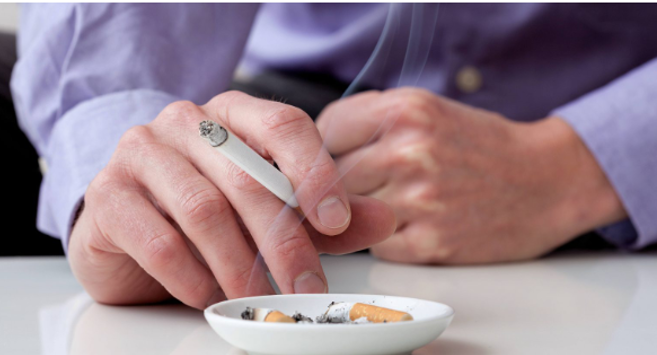Pandemic Isolation Can Be Especially Hard on Older Adults
Pandemic Isolation Can Be Especially Hard on Older Adults
Watch for signs of memory loss, depression and anxiety in elderly relatives
The public health advice for preventing the spread of the coronavirus — like staying home and avoiding large gatherings — has undoubtedly saved lives. Unfortunately, it’s also left many of us feeling lonely or isolated from others at some point during the pandemic.
Experts have worried about the effects of the pandemic on mental health. This is especially a concern for older adults, who’ve been encouraged to be extra careful because they’re at greater risk for getting very sick with or dying from COVID-19 if they get it.
But being homebound and isolated from others can have unhealthy effects. For example, studies show that chronic loneliness can worsen memory in older adults and cause other declines in mental and physical health.
“Many seniors already deal with isolation, and we’ve seen it worsen during the pandemic,” says geriatric physician Kathleen Rogers, MD.
“As a result, we’re seeing a lot more patients with anxiety, depression and worsening memory loss.”
Seniors and isolation
Even before the pandemic, older adults were particularly at risk for loneliness.
“After retirement, people’s routines change. Their brain activity and their social interactions are different,” Dr. Rogers explains. During the later years of life, many people also go through other major changes such as the loss of friends, spouses or loved ones that could contribute to loneliness.
“This increases the risk of being diagnosed with anxiety and depression or both,” Dr. Rogers says. Untreated depression and social isolation can also contribute to memory loss.
How to engage your older relatives in holiday celebrations this year
The CDC recommends that people at higher risk for COVID-19 consider holiday activities that are lower-risk than in-person gatherings with people outside of their household.
This could mean that elderly relatives participate in gatherings via video chat. While connecting virtually with your loved one isn’t the same as hugging them and being with them physically, it’s a super-safe way to stay in touch.
“There are tablets with bigger monitors they could use, or even hook up the television to a webcam so they can see it on the big screen,” Dr. Rogers suggests. “They just might need somebody to help set that up.”
If you live in a warm climate, you could also plan a small outdoor gathering, as outdoor activities are generally considered safer during the pandemic. Ask everyone to wear a mask, wash their hands and carry hand sanitizer. You could also consider asking anyone attending to avoid contact with people outside of their household for 14 days beforehand.
“If you or anyone feels sick in any way — even if it’s not symptoms of COVID-19 — it would be best not to go to a gathering,” Dr. Rogers says.
Red flags that your elderly loved ones are struggling
Signs of depression, anxiety or worsening memory loss often go unnoticed in seniors. If you’re seeing your grandparents or parents for the first time in a while, take notice if anything is different about them.
- Have they lost interest in things they used to enjoy?
- Is their house messy or their yard unkempt, when they previously kept on top of house and yard work?
- Have they lost weight? This could indicate they haven’t been cooking or eating.
- Are they having trouble sleeping?
- Are they showering less?
- Are they skipping medications or forgetting to take them?
- Have they lost the desire to decorate for the holidays if this is something they previously looked forward to?
- Are they missing bills, or overpaying them?
- Have they distanced themselves from communities they used to be part of?
Your loved one may not ask for help or even realize they’re struggling with mental or cognitive health issues, but if you become aware, you can help set up an appointment with their primary care doctor.
Help seniors stay happy and healthy during the pandemic
There are many ways you can support your elderly loved ones.
Keep up with a daily routine
Plan regular social engagement
Do activities to stimulate the brain
While this holiday season might look a little different, a little effort can go a long way in making sure the older adults in your life feel loved and included.
Read full article HERE
Source: Cleveland Clinic





